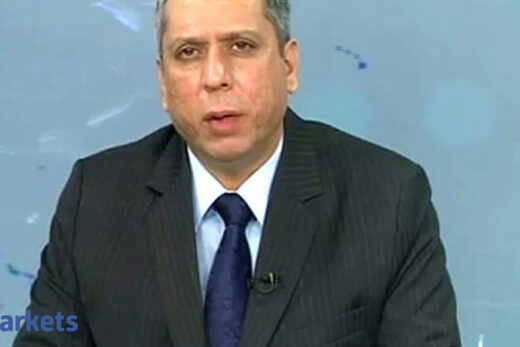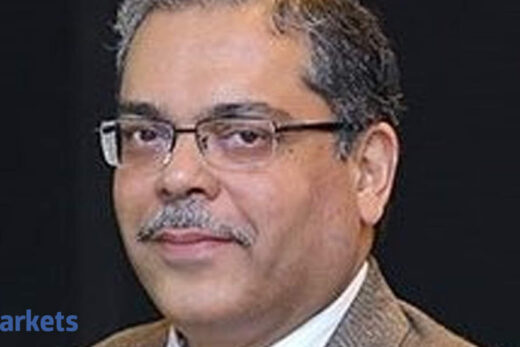Let us talk about your last acquisition Publishme? How does this hit in? You are a company with original license of your own games but your big business is to take bets in other gaming companies and invest in them and see them grow.
I think at the heart of our business are three cohorts of consumers. One is 2-12 year old young kids, 14-25 year old male sports fans and then above 25 gamers. All our acquisitions will fit into these cohorts, where either we are acquiring IPs or we are acquiring capabilities to grow our businesses.
That is a very fundamental simple framework we have for us. And in terms of geographies, we look at India, South Asia, Africa, and the Middle East. All are emerging markets which are seeing a strong tailwind across gaming and adjacencies to gaming. We are in a golden decade. We like to be a very dominant gaming company in emerging markets with a very strong foothold in India.
Publishme allows us to build capabilities for us to build gaming IPs in the Middle East. Gaming is cultural entertainment, it is driven by a very strong influencer, local community ecosystem and that is why having an on ground understanding of what the consumer needs and how it would pan out in terms of retention engagement, consumer acquisition and community building is an important aspect for us to succeed. Publishme brings us that execution capability for us to build the foundation and then take it forward.
How much of your business growth will come from your original core businesses and how much will come from the investments which you have done? I am using the InfoEdge example because that is a parallel which I can draw.
InfoEdge heads Naukri, Sikhsha and Makaan as its own subsidiaries and then they are investing. Nazara three years back took a call that gaming is a talent driven business and that talent is very passionate about what they create and you need to work with that talent to grow those companies.
So if you see Nazara’s teleco business which we have been doing for 15 years, it is almost now 13-14% of the overall portfolio and our IPs which we have acquired and grown over last three-four years like kiddopia, Nodwins, Sportskeeda, the World Cricket Championship; they are all growing so. If you look at our strategy, it has been to build all the friends of Nazara as a concept and then continue to build value with those founders at subsidiary levels.
We also wanted to get a sense of the overall business. Ever since the start of the pandemic we have established that most people are spending a whole lot of time gaming but how has your overall business shaped up and what kind of margin figures do you now see sustainable going forward?
Gaming as a secular trend was in a very advanced stage even before COVID and I think there are two key reasons for that. One was the launch of Jio and the second was UPI transactions, micro transaction infrastructure and I think that 2017-2018 has been kind of a pivotal time period for Indian gaming to take off. COVID accelerated some of those trends especially in e-sports where more participative foundation tournament people started playing.
Gaming was growing fast and if you see our own numbers, even before COVID we were growing almost about 48-50% year on year. Then the combination of acquisition and growth helped us grow 87% and we are continuing to see that momentum of growth in different businesses.
Just before Covid, when Satya Nadella was in India, Mukesh Ambani and him were talking about how e-gaming in India can become bigger than music, shopping and TV. Now the Chinese are saying that gaming is equivalent to spiritual opium. Has India indeed become a beneficiary of that? Have you already started seeing that?
On a lighter note, I think India has its own huge spiritual dip for gaming. On a serious note, if you see, India is still two, three, four years-old in e-gaming and esports. It is still a very small market and the growth of this market is going to come in the next three, four, five years. We never really had PC or LAN gaming. Our gaming is limited and coming from mobile as an access device and it is a three-four year old industry.
However it is always important as an industry to really look at what is happening in the markets which are far ahead of you, seven- eight years ahead of you and then work with stakeholders today so that you can ensure that you are creating and evangelising the benefits of gaming.
Second, you are also creating a self regulatory framework within the industry to ensure that you do not have the same fate. So all of that is happening and that is the advantage of hindsight in which you can see markets like east and west and learn from them and create your own structures in place.
We are literally in the initial days of gaming but one problem is that at least four states in India, all of them from the south, have taken a stance against e-gaming. Karnataka being the latest one. It is the technology hub of the country, it is the home of the start-ups and many of gaming unicorns and start-ups as well. Is this a risk when it comes to this business for you?
If you look at the risk of gaming, it is predominantly limited to skill based real money gaming where people are waging their money to win a large part of money. The non-real money gaming part which is free to play mobile gaming, e-sports or gamified learning do not fall into this bracket.
Coming back to skill based real money gaming. I think clarity will emerge on games of skill and games of chance. You would have heard about the Madras High Court decision which quashed the Tamil Nadu Government decision saying that you cannot ban skill based gaming.
The difference between game of chance versus game of skill will emerge and that is how the clarity on the policy will emerge and going forward maybe three, four, five, six quarters but these are all parts of an industry which is growing very fast.
Gaming has a very strong mass perception that you are really not doing physical exercise, which is one thing which has been associated with e-sports being added into Asian Games. Our athletes have a very-very strong chance of winning medals. I think all those positive things will come into play in the coming time when we will have national e-sports championships and all of this will play well in creating positive perception around gaming.
Currently because of nascency, because of the shorter period of time, you are kind of dealing with perception of 30, 40, 50 years and which is going to really take time to change and that can only change through large ticket items like Olympics plus constant engagements with the stakeholders.



